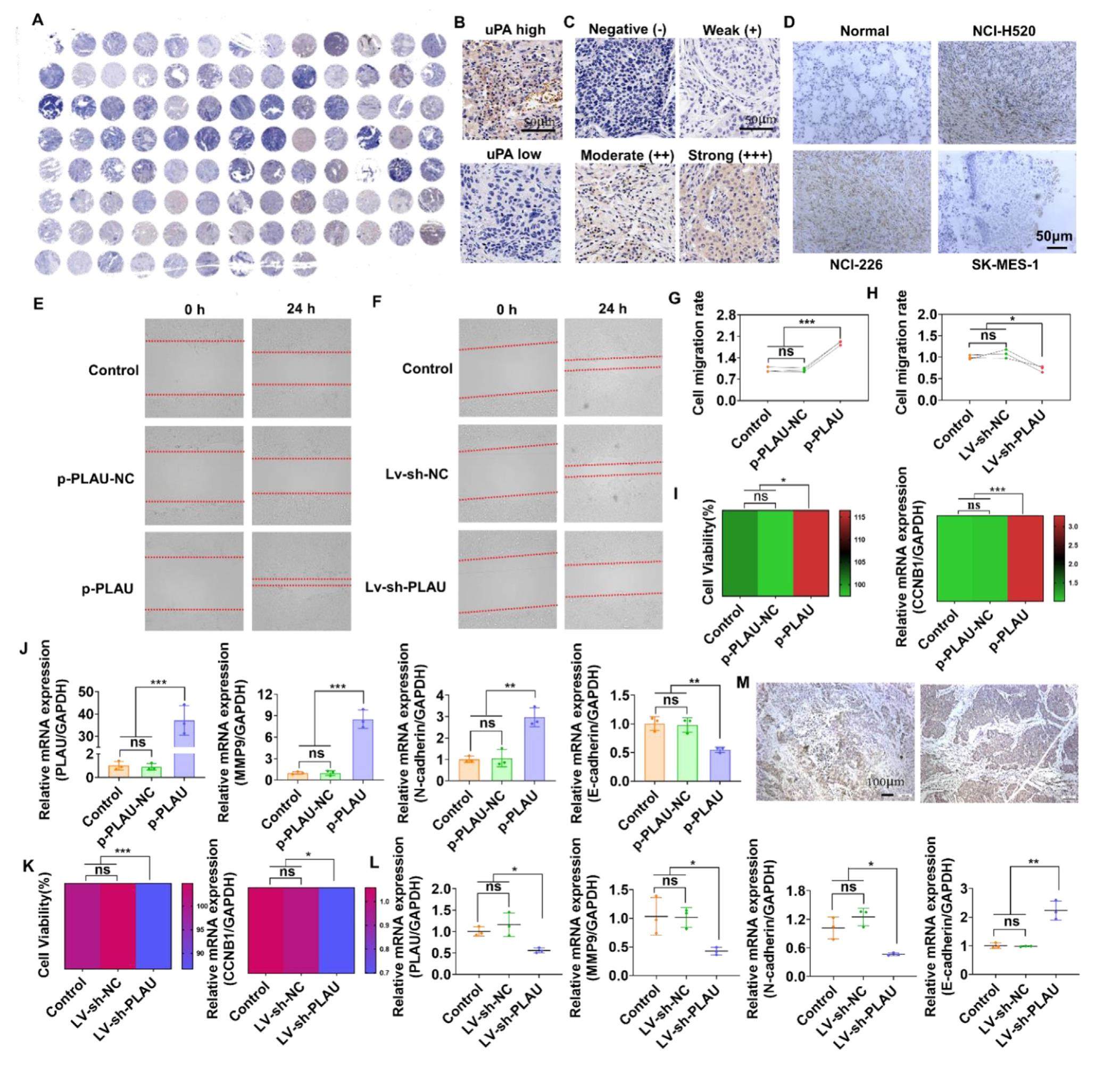
PLAU plays a functional role in driving lung squamous cell carcinoma metastasis


The high mortality of patients with lung squamous cell carcinoma (LUSC) results from metastasis rather than primary tumors, whereas the molecular pathogenesis of cancer metastasis remains poorly understood. PLAU encodes urokinase-type plasminogen activator (uPA) which is closely related to tumor diagnosis, treatment target, and prognosis of patients. We previously predicted that PLAU is a key gene negatively associated with overall survival by integrated multidimensional analyses of The Cancer Genome Atlas (TCGA) datasets from 504 samples of LUSC tumor tissues and 46 samples of adjacent non-tumorous lung tissues. However, whether the role of PLAU contributes to the metastasis of LUSC remains unclear. Here, we analyzed the association between uPA levels and LUSC and found that uPA levels were associated with pathological variations in LUSC patients. Furthermore, we found that overexpression or interference of PLAU resulted in significant changes in the migration abilities and metastasis-associated gene expression in lung and LUSC cells, respectively. These findings uncover a key role for PLAU in LUSC metastasis and provide a potential novel early diagnosis and therapeutic target for metastatic LUSC intervention. We demonstrated that PLAU (uPA) is vital to LUSC metastasis; thus, it could be a promising biomarker for this disease, which contributes to the prevention of LUSC metastasis by encouraging the development of diagnostic and therapeutic strategies that target the identified PLAU (uPA) -associated genes and pathways.
